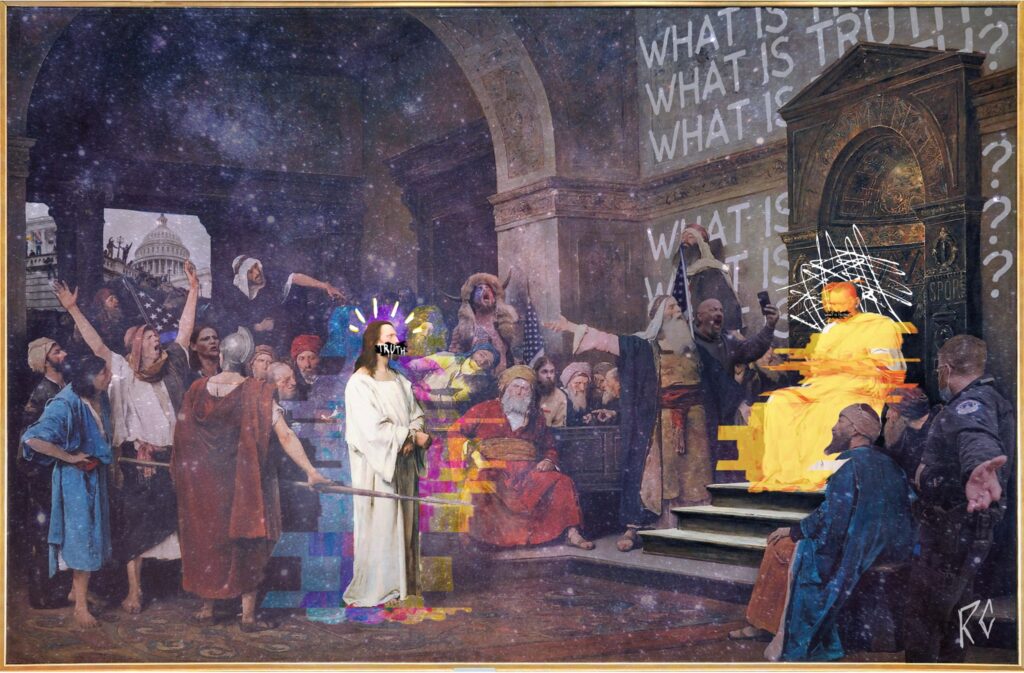
John, in the book of Revelation, offers us a beautiful picture of heaven. He depicts it as the new Jerusalem “prepared as a bride adorned for her husband. And I heard a loud voice from the throne saying “See the home of God is among mortals. He will dwell with them; they will be God’s people, and God will wipe away every tear from their eyes. Death will be no more; mourning and crying and pain will be no more, for the first things have passed away”. “See I have made all things new”.
This Sunday marks the last day after Pentecost and before Advent. The liturgical season changes after Thanksgiving, and I want to say that we all have an opportunity to change with it. Advent is my New Year’s Day, it is our New Year’s Day. We begin to hear specifically how God made God’s home among mortals, and how the proclamation of the Kingdom of God took shape. It was in a faithful coming together of a young woman and the Spirit of God, and so the subject of a prayer Jesus would eventually teach his disciples was formed – Thy Kingdom come, Thy will be done, on earth as it is in heaven.
There is a river shown flowing through the new Jerusalem that John describes in Revelation. It has trees on its banks. One has leaves that “are for the healing of the nations”. Heaven knows our sorrows and our pains. Heaven acknowledges that we have a hard time living locally and universally. For our protection and survival, we create our own kingdoms, and from that enmities and wars break out almost generation by generation. And so, in heaven, there’s a tree with leaves ready for our healing. That is part of that kingdom “in heaven” that we want to see “on earth.
And so, the very last focus of the Church calendar, as we begin to steer towards that light of Christ that comes into our darkness, to use another Advent seasonal metaphor, is Christ the King. His rule is contrasted with that of the Roman Empire of Christ’s day. The Gospel has a stand off between Jesus and Pilate, and woven into that encounter is discussion on the reality and meaning of truth.
“What is truth?” Pilate eventually asks, bemused by a King who refuses to defend Himself, and yet whose authority, we read in between the lines, Pilate cannot deny. It is a question that the Church has carried forward in its own development, and has not always found the courage to withstand the easy characterizing of power as truth. Don’t we say the winners get to write history?
Yet, John says that there is a tree with leaves for the healing of the nations. I think it has always been there, available if we seek to make use of its powers. It is part of Jesus’ truth. For truth is about the whole picture of things. It may include my personal opinion or judgement. It does include the collective gathering of our experiences and insights. It certainly includes our academic and journalistic research. But it is more than that. In the end to embrace truth is to stand in silence refusing to defend yourself as Jesus did because the present experience is only part of a much bigger picture which has roots in the being and creative purpose of God.
On Sunday, we will read the lessons for Christ the King Sunday. We will listen to the conversation between Jesus and Pilate, and then we will be silent. We will seek to root ourselves in the Truth of God’s Kingdom, and from that place offer prayer – for ourselves, for one another, for our family, friends and neighbors, and for our world, for the nations to be healed, and for our tears to be wiped away. We will let God’s truth be our experience in the midst of acknowledging the painful side of living and feel the prayer for God’s Kingdom and Will to be done “on earth as it is in heaven”.
Last Saturday, I officiated at the blessing of a civil marriage. The couple sought to embrace as much of the marriage liturgy as was appropriate, together with the symbols of renewed vows and blessed rings. The bride was adorned before her husband. It was their public statement of their marriage. It was also a public statement of their faith. They chose unusual songs from a wedding – emphasizing their inadequacy before God “I am not God’s best bet” yet. But God forgave and made new. They sang of being blown away by God’s love in Christ from the cross. And they finished with a song called Gratitude – to God for God’s love, during which the couple all but danced before the altar as they held each other’s face and wiped away their tears! For a moment it was God come down among mortals living out the vision of the new Jerusalem and yes, complete with the wiping of tears.
– Bishop Alan

Recent Comments